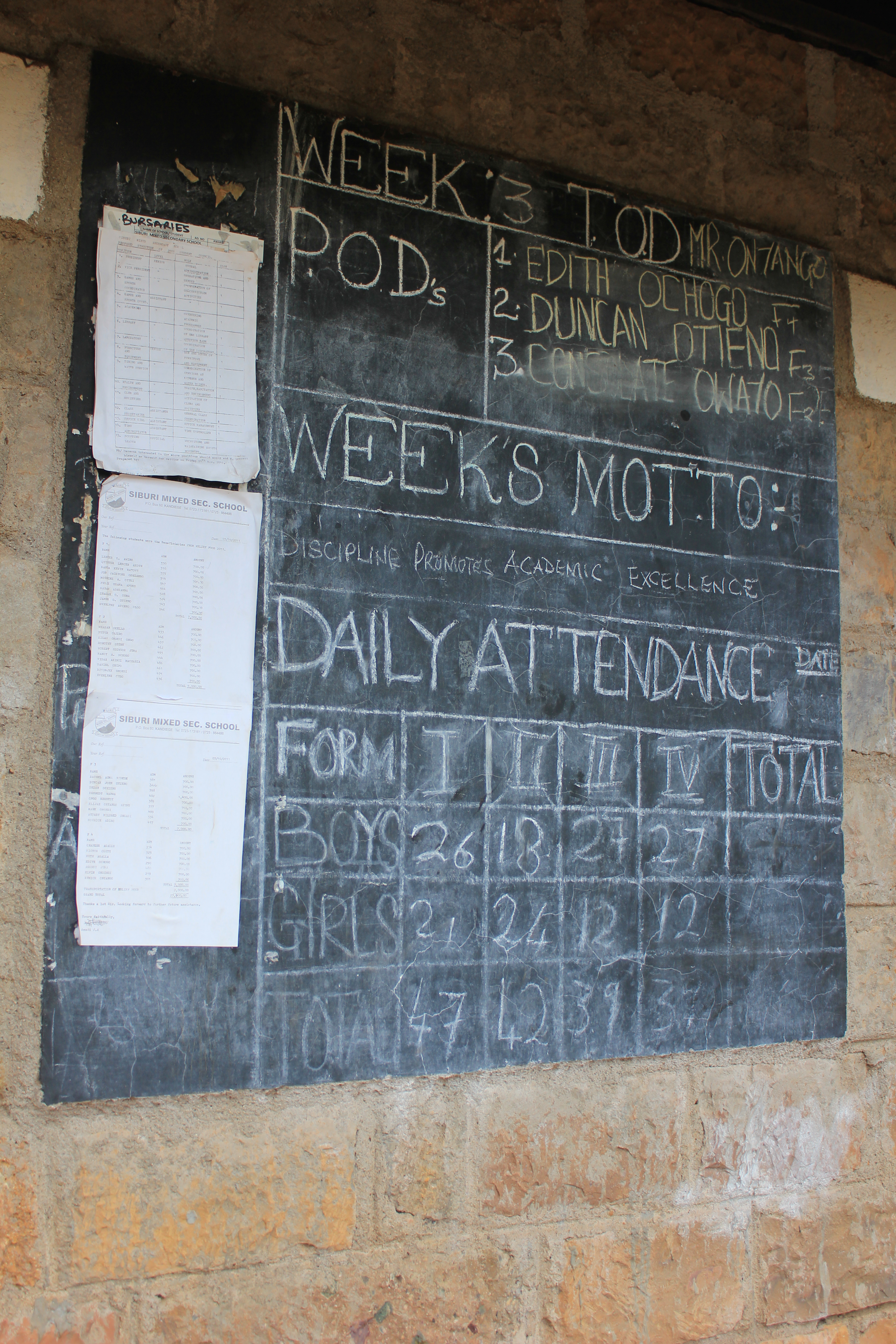Far from good, but good from afar?
Last time, I wrote about how the competition in the job market in Kenya is getting stiffer by the day. More and more people now have master’s degrees, for example. The question is: Where does that leave those who cannot afford to climb the education ladder that high?
There are other options. One can go to a tertiary college. I have several cousins and other relatives who did not have the finances to go on to university once they finished high school, even though they had worked hard enough to get grades that would have been sufficient for entering a university.
![]() read more
read more
So many degrees, but no jobs
Once I finished my thesis around this time last year, I began that most dreaded journey: the job hunt. Optimistic, full of energy, I trawled the internet, revived old networks and subscribed to various job advertising websites. The journey looked promising! I’m sad to say that more than 200 application letters later, I have only had 2 interviews and no job offers!
![]() read more
read more
Smartphones, smarter learning
“Hey, do you have that new mobile phone application for transferring money from your bank account to your phone?”
“You mean I can now pay my electricity bill with my phone?”
“Is your phone twin-sim?”
…these were the kind of discussions I came home to after two years of being away. So much had changed.
![]() read more
read more
Throwing a bit of a wrench into gender discussions

Equal rights for girls - and boys!
We often make the mistake of equating the definition of gender with women. ‘Gender equality,’ ‘gender and education,’ ‘gender and…’ almost always mean women and fighting for the rights of women. From the higher authorities such as the UN to the basic family level, war has been waged almost literally to protect the rights of the female gender – and rightfully so. I am certain that the strides that have been made even in the western world with regards to the emancipation of women would not have been possible had there been no sacrifices made before.
Nevertheless, I tend to think that male children have been forgotten!
![]() read more
read more
Educated women are more ‘expensive’
Last week on one of the television stations there was a report about school children who have to travel 10 hours to attend one hour of school. Hard to believe in this day and age! It’s because there are no schools nearby, and the transport system in that remote part of the country is almost non-existent.
In reflecting on gender and education – I thought to myself: In some parts of this world access to education irrespective of gender is a distant dream. Also, if access irrespective of gender is already a problem, how much more hard is it for girls in societies where the expectations for girls and women do not include getting an education?
![]() read more
read more
Light at the end of the tunnel – literally!

Many pupils in Kenya don't get the chance to study until after sundown
I read Maria’s first blog entry, and some of her words resounded heavily with me. In her post, she explains why she changed jobs: “Truth is, at the NGO, I encounter different realities than my own, I can work in programs that aim at social inclusion and better quality education – actions that imply a commitment to society from the perspective of the fellow other.”
Her post reminds me of my work with Givewatts – an organization that brings clean, renewable and safe energy to people like Peter Ochieng, a young man in a video I was just editing.
![]() read more
read more
23 years later – educated, schooled or learned?
 After almost 23 years of being in school, you would think that one has had enough education to last the rest of their lifetime (considering that average lifespan is about 60 years on this side of the globe). Well, for many this is usually just the beginning. This was also the case for me. Let me explain…
After almost 23 years of being in school, you would think that one has had enough education to last the rest of their lifetime (considering that average lifespan is about 60 years on this side of the globe). Well, for many this is usually just the beginning. This was also the case for me. Let me explain…
![]() read more
read more












Feedback